
Find Help
More Items From Ergsy search
-

What lifestyle changes can help manage sleep apnea?
Relevance: 100%
-
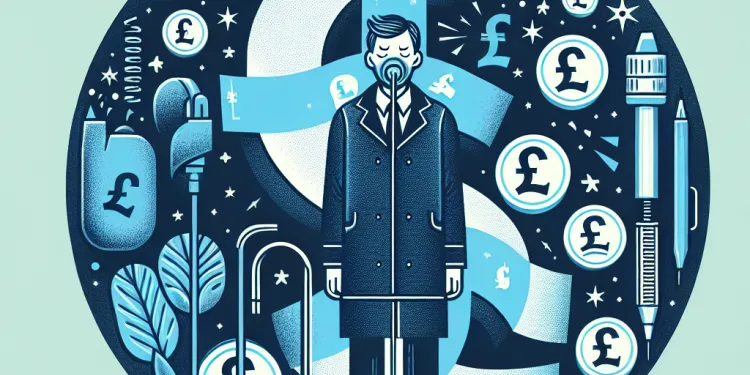
What is sleep apnoea?
Relevance: 82%
-

What is sleep apnea?
Relevance: 82%
-
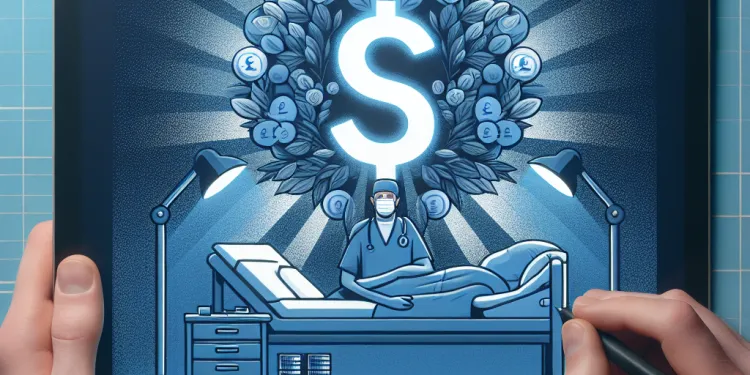
Can sleep apnea be cured?
Relevance: 80%
-
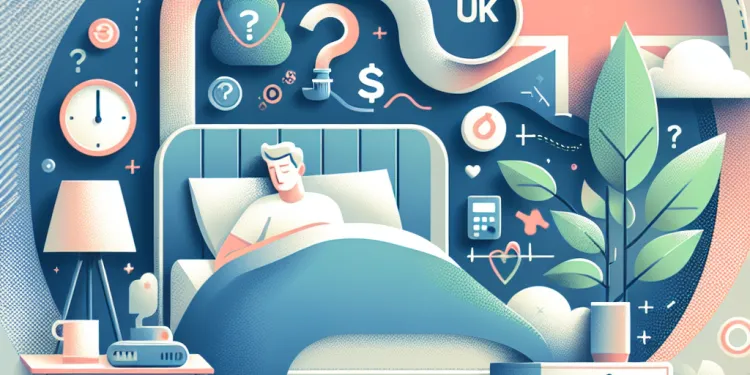
How common is sleep apnea?
Relevance: 78%
-
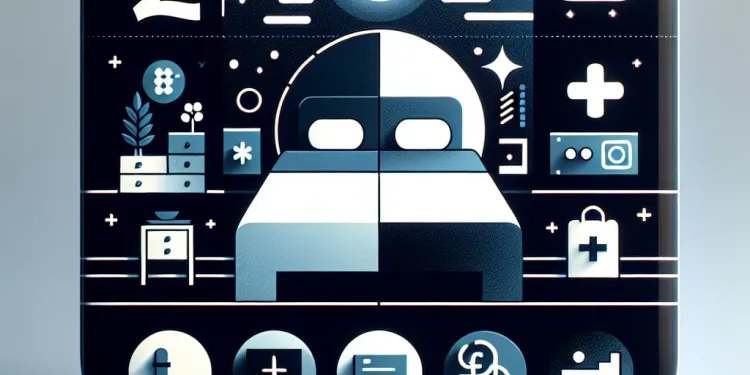
What treatments are available for sleep apnea?
Relevance: 77%
-
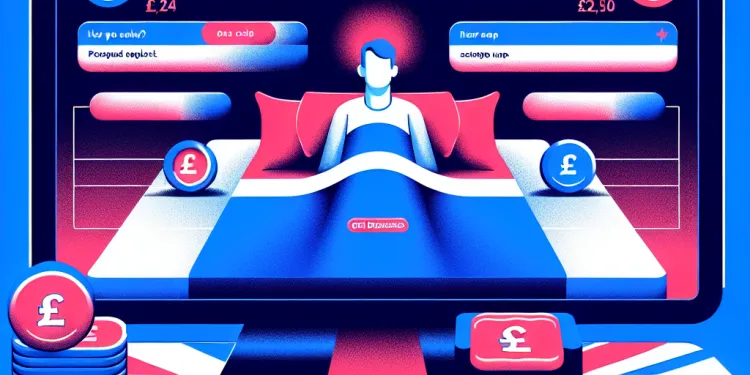
How is sleep apnea diagnosed?
Relevance: 76%
-

What is complex sleep apnea syndrome?
Relevance: 75%
-
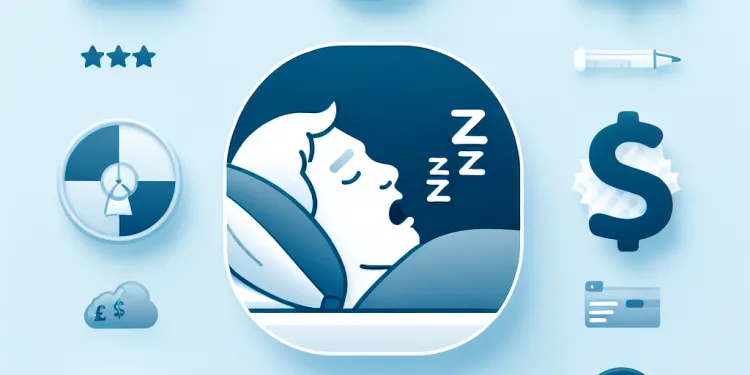
Is snoring always a sign of sleep apnea?
Relevance: 74%
-

What are the main types of sleep apnea?
Relevance: 74%
-
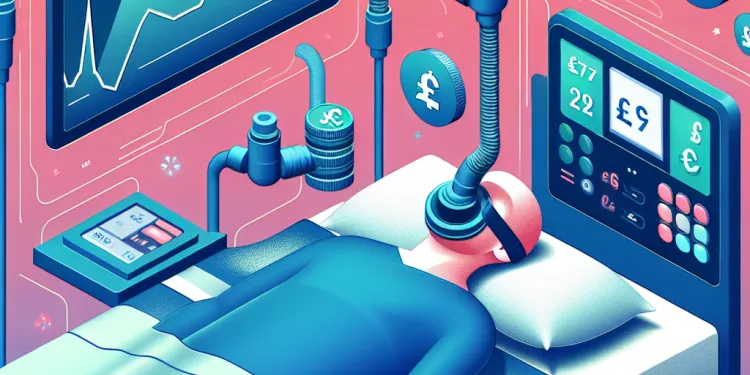
Is CPAP the only treatment for sleep apnea?
Relevance: 74%
-

Does sleep apnea occur only in adults?
Relevance: 73%
-
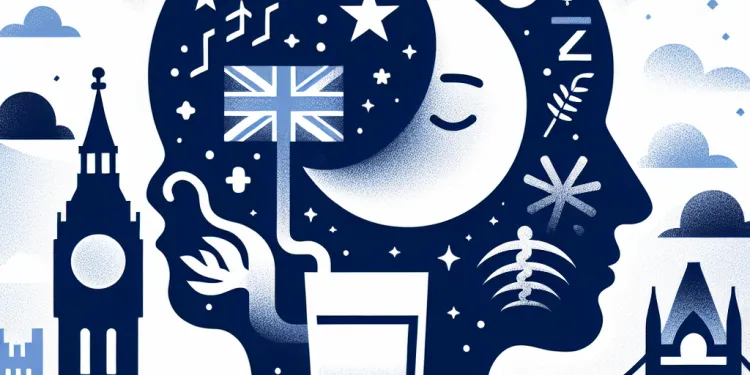
Can alcohol worsen sleep apnea?
Relevance: 73%
-

Why is sleep apnea dangerous?
Relevance: 73%
-

What should I do if I suspect I have sleep apnea?
Relevance: 73%
-
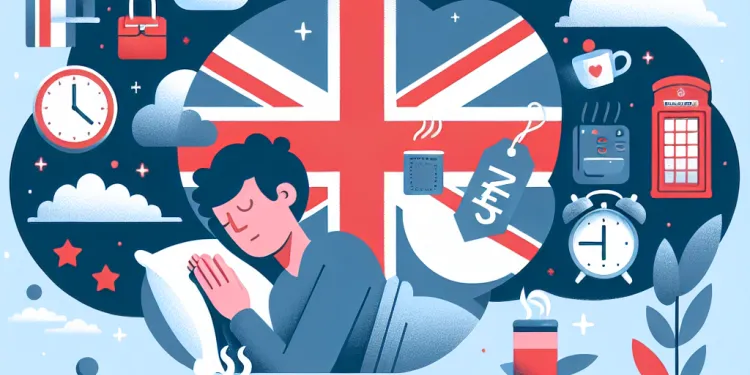
What are common symptoms of sleep apnea?
Relevance: 73%
-
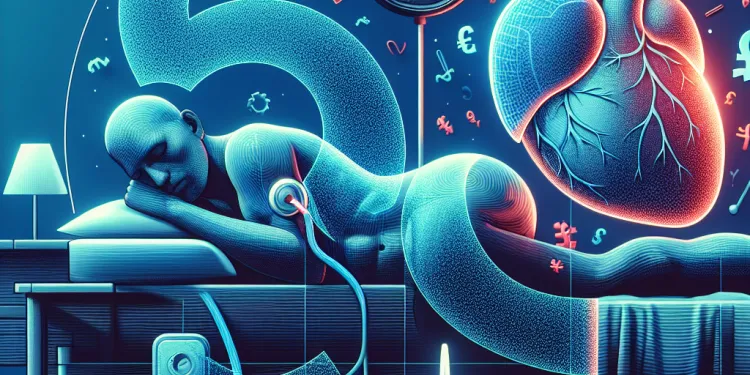
What is complex sleep apnea syndrome?
Relevance: 73%
-

What causes obstructive sleep apnea?
Relevance: 72%
-
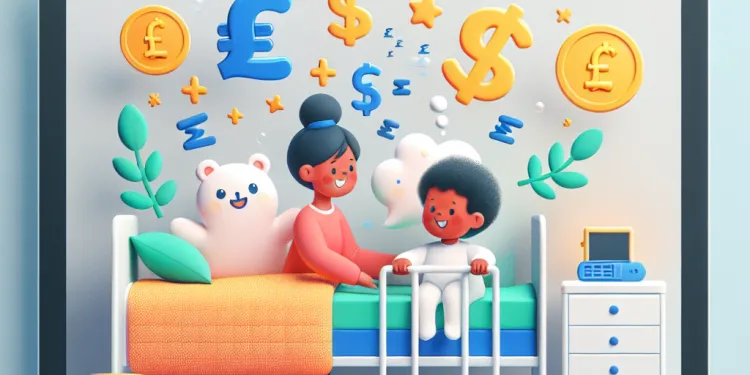
Can children have sleep apnea?
Relevance: 72%
-
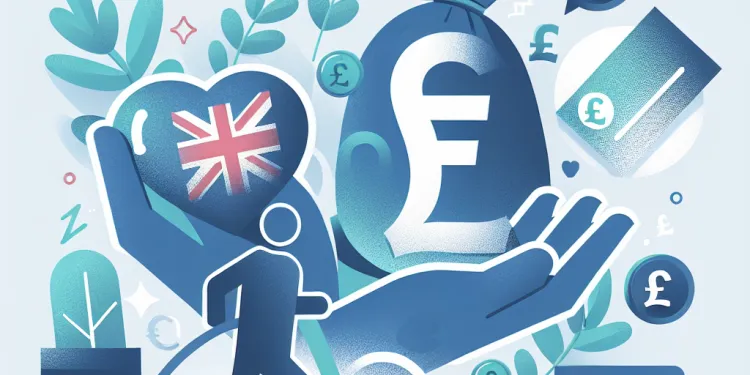
What are risk factors for developing sleep apnea?
Relevance: 70%
-

Can weight loss improve sleep apnea?
Relevance: 68%
-
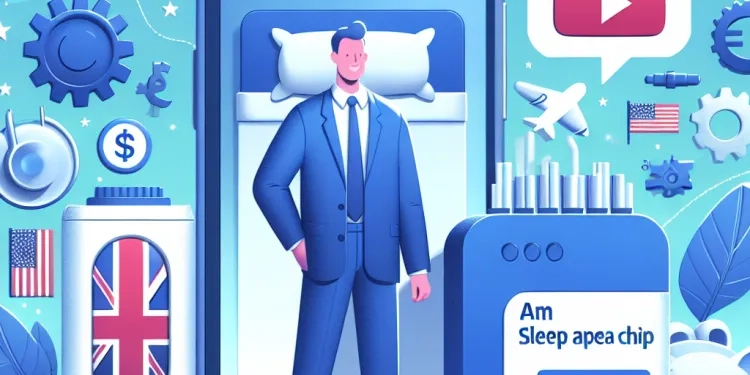
Am I eligible to try the new sleep apnea chip?
Relevance: 65%
-

How does the new Sleep Apnea Chip work?
Relevance: 62%
-
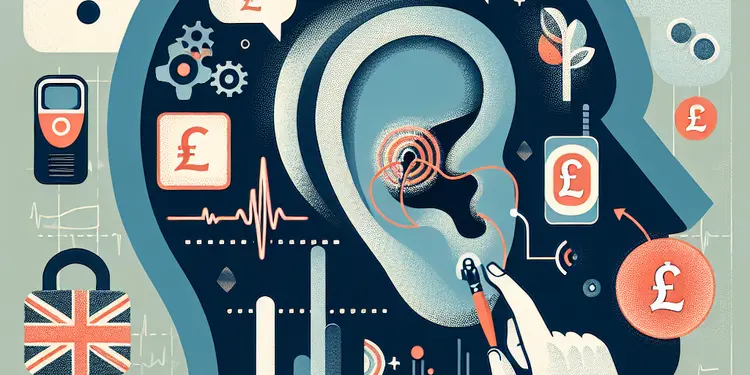
Can lifestyle changes help manage tinnitus?
Relevance: 61%
-

Can lifestyle changes help manage ADHD?
Relevance: 60%
-
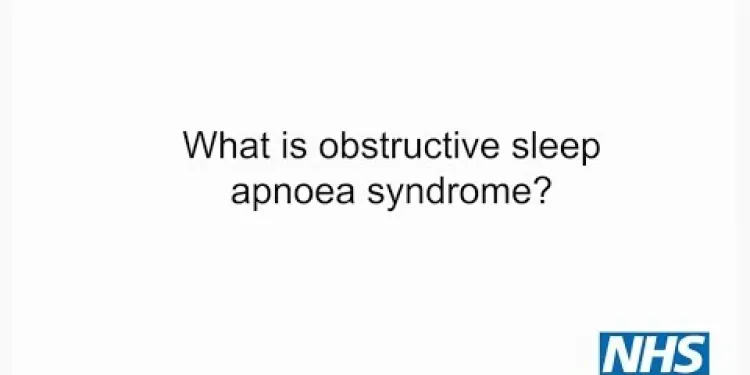
Introduction to obstructive sleep apnoea
Relevance: 56%
-

Can lifestyle changes help manage Huntington's disease?
Relevance: 55%
-

What role do lifestyle changes play in managing psoriasis?
Relevance: 54%
-
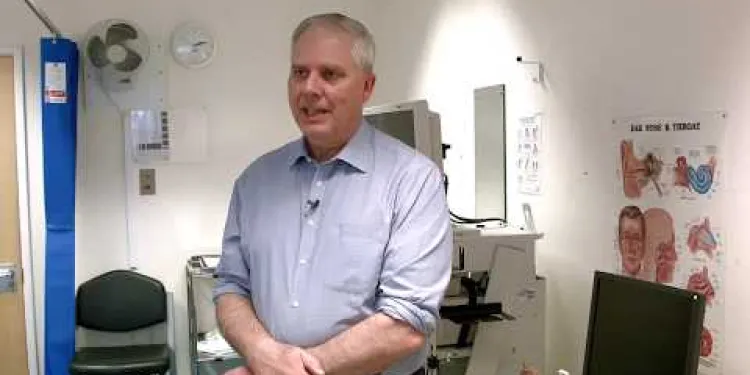
Evidence-Based Interventions: snoring surgery in the absence of Obstructive Sleep Apnoea (OSA)
Relevance: 52%
-

Can lifestyle changes help manage Carpal Tunnel Syndrome?
Relevance: 50%
-

Can lifestyle changes help manage pain and fever during pregnancy?
Relevance: 50%
-

Can lifestyle changes help with health-related anxiety?
Relevance: 48%
-

Can lifestyle changes help with postnatal depression?
Relevance: 47%
-
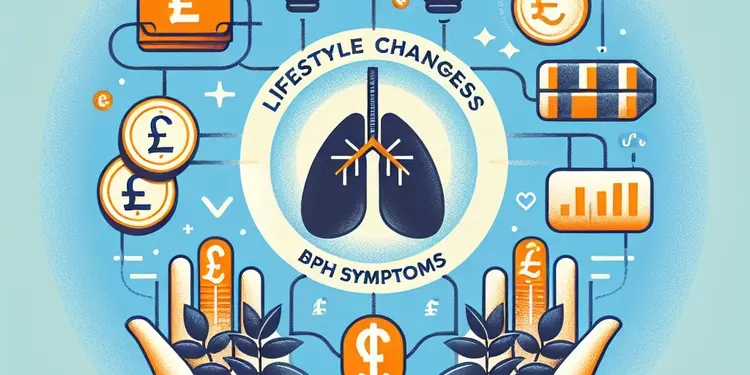
Can lifestyle changes help manage BPH symptoms?
Relevance: 47%
-

Can chronic fatigue syndrome be managed with lifestyle changes?
Relevance: 47%
-

Can lifestyle changes help with menopause masking?
Relevance: 45%
-

Are there lifestyle changes recommended with Baxdrostat?
Relevance: 44%
-

Can lifestyle changes help prevent Super Flu?
Relevance: 44%
-

What lifestyle changes can help manage thrombosis risk?
Relevance: 43%
-
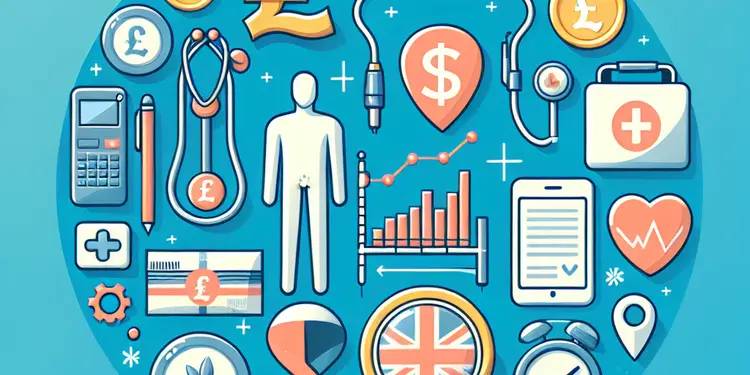
Can lifestyle changes complement prostate cancer treatment?
Relevance: 42%
Understanding Sleep Apnea
Sleep apnea is a serious sleep disorder where breathing repeatedly stops and starts. This can lead to disrupted sleep and a host of other health issues, including cardiovascular problems and daytime fatigue. Effective management of sleep apnea often requires a combination of medical treatments and lifestyle changes. Here are some lifestyle modifications that can help manage sleep apnea specifically for individuals in the UK.
Maintain a Healthy Weight
Obesity is a significant risk factor for sleep apnea. Excess weight, especially around the neck, can increase the likelihood of airway obstruction. Losing weight through a balanced diet and regular exercise can significantly reduce symptoms. Incorporate plenty of fruits, vegetables, and whole grains into meals, reducing unnecessary calorie intake. The NHS offers resources and support for those looking to achieve and maintain a healthy weight.
Adopt a Regular Exercise Routine
Engaging in regular physical activity can improve sleep quality and reduce sleep apnea symptoms. Aim for at least 150 minutes of moderate aerobic activity, such as cycling or brisk walking, every week as recommended by the UK's NHS guidelines. Exercise helps to tone muscles, including those in the airways, potentially decreasing the severity of sleep apnea.
Modify Sleeping Positions
Sleeping on your back can worsen sleep apnea symptoms. This position allows the tongue and soft tissues to fall back into the throat, blocking the airway. Try sleeping on your side to keep the airways open. Specialised pillows and positional therapy devices are available to help encourage side sleeping.
Avoid Alcohol and Smoking
Alcohol relaxes the muscles in the throat, increasing the likelihood of airway obstruction during sleep. Avoid consuming alcoholic beverages, especially in the hours leading up to bedtime. Smoking can also worsen sleep apnea by inflaming and increasing fluid retention in the upper airway. Seeking help to quit smoking can reduce symptoms and improve overall health.
Establish a Consistent Sleep Schedule
A regular sleep schedule can improve sleep quality and reduce complications associated with sleep apnea. Aim to go to bed and wake up at the same time every day, including weekends. Develop a relaxing bedtime routine to help signal to your body that it is time to wind down. Consider reducing screen time and creating a comfortable sleep environment as part of this routine.
Limit Caffeine and Heavy Meals at Night
Caffeine and heavy meals can lead to sleep disturbances. Try not to consume caffeine within several hours of bedtime. Similarly, avoid large or spicy meals close to bedtime, as they can cause indigestion and disrupt sleep.
Seek Support and Resources
There are resources available in the UK for those with sleep apnea symptoms. Consider joining support groups or seeking advice from sleep specialists or your GP. Addressing sleep apnea with a comprehensive approach can significantly improve quality of life.
What is Sleep Apnea?
Sleep apnea is a health problem where your breathing stops and starts while you sleep. It can make you feel tired during the day and cause other health issues. To help sleep apnea, people use both medicine and lifestyle changes. Let's look at some changes that can help people in the UK with sleep apnea.
Keep a Healthy Weight
Being overweight can make sleep apnea worse. Extra weight, especially around the neck, can block your breathing. Losing weight by eating healthy foods and exercising can help. Eat lots of fruits, veggies, and whole grains. The NHS has help for people who want to reach and keep a healthy weight.
Exercise Regularly
Doing regular exercise can help you sleep better and reduce sleep apnea symptoms. Try to do at least 150 minutes of exercise like biking or walking fast each week. This is what the NHS in the UK suggests. Exercise makes your muscles stronger, which can help with sleep apnea.
Change How You Sleep
Sleeping on your back can make sleep apnea worse. This is because your tongue and soft tissues can block your airway. Try sleeping on your side to help keep your airway open. There are special pillows and devices to help you sleep on your side.
Don't Drink Alcohol or Smoke
Alcohol makes the muscles in your throat relax, which can block your airway while you sleep. Try not to drink alcohol, especially before bedtime. Smoking can also make sleep apnea worse by causing swelling in your airway. Getting help to quit smoking can make sleep apnea better and improve your health.
Have a Regular Sleep Schedule
Going to bed and waking up at the same time every day can help you sleep better. Try to keep the same schedule even on weekends. Make a bedtime routine that helps you relax. This could mean turning off screens and making your bedroom comfortable.
Limit Caffeine and Big Meals at Night
Caffeine and big meals can make it hard to sleep. Try not to have caffeine a few hours before bed. Also, avoid big or spicy meals close to bedtime as they can make it hard to sleep.
Get Help and Support
There is help in the UK for people with sleep apnea. You can join support groups or talk to sleep doctors or your GP. Treating sleep apnea in many ways can make your life better.
Frequently Asked Questions
What is sleep apnea?
Sleep apnea is a sleep disorder characterized by repeated interruptions in breathing during sleep.
How can weight loss impact sleep apnea?
Losing excess weight can help reduce fat deposits in the neck that may block the upper airway, improving sleep apnea symptoms.
Can positional therapy help with sleep apnea?
Yes, sleeping on your side instead of your back can prevent the tongue and soft tissues from collapsing into the airway, which can reduce apnea episodes.
What role does diet play in managing sleep apnea?
A healthy diet can contribute to weight loss, thus potentially improving sleep apnea symptoms. Foods rich in antioxidants may also help reduce inflammation.
Why should alcohol be avoided for sleep apnea management?
Alcohol can relax the throat muscles, increasing the risk of airway obstruction and worsening sleep apnea symptoms.
How can quitting smoking improve sleep apnea?
Smoking can increase inflammation and fluid retention in the upper airway, quitting can reduce these effects, thereby improving symptoms.
Is regular exercise beneficial for sleep apnea?
Yes, regular exercise can help reduce symptoms by promoting weight loss and improving cardiovascular health, possibly reducing the severity of sleep apnea.
What impact does sleeping with the head elevated have on sleep apnea?
Elevating the head during sleep can help keep the airway open, reducing snoring and episodes of apnea.
Can avoiding sedatives help manage sleep apnea?
Yes, sedatives can relax the throat muscles, potentially worsening obstruction during sleep. Avoiding them can prevent this.
How can nasal breathing strips help with sleep apnea?
Nasal strips can help improve airflow through the nasal passages, making breathing easier and may reduce snoring and apnea episodes.
Is maintaining a regular sleep schedule important for sleep apnea?
Yes, keeping a consistent sleep schedule reinforces the body's natural sleep-wake cycle, which can improve sleep quality despite apnea.
Can using a humidifier help with sleep apnea symptoms?
Yes, a humidifier can add moisture to the air, reducing irritation in the respiratory tract and potentially improving symptoms.
Why is it important to manage allergies for sleep apnea?
Allergies can cause nasal congestion, making it harder to breathe through your nose. Managing allergies can keep airways clearer, reducing apnea symptoms.
Can oral appliance therapy replace CPAP for sleep apnea management?
In some cases, oral appliances can help reposition the jaw and keep the airway open, though it's typically recommended for mild to moderate cases.
How does hydration affect sleep apnea?
Staying well-hydrated can thin mucus in the nasal passages, reducing congestion and possibly improving apnea symptoms.
Can stress management impact sleep apnea?
Yes, managing stress can improve sleep quality by reducing nighttime awakenings and stabilizing breathing patterns.
Why is caffeine reduction important for sleep apnea management?
Reducing caffeine intake can improve sleep quality and help maintain a healthier sleep pattern, potentially reducing apnea symptoms.
Can acupuncture help with sleep apnea?
Some studies suggest that acupuncture may help improve airway function and reduce symptoms, though more research is needed.
Is it beneficial to practice good sleep hygiene for sleep apnea?
Yes, good sleep hygiene, such as keeping the bedroom dark and quiet, can improve overall sleep quality and help manage sleep apnea.
What role does a balanced diet play in sleep apnea management?
A balanced diet can support overall health and aid in weight management, which can reduce the severity of sleep apnea.
What is sleep apnea?
Sleep apnea is a condition that affects your breathing when you sleep. This means your breathing stops and starts during sleep.
Here are some signs of sleep apnea:
- You snore loudly.
- You feel very tired during the day.
If you think you have sleep apnea, talk to a doctor. They can help you get the right treatment.
Tools to help understand:
- Ask someone to read with you.
- Use pictures to understand better.
- Listen to audio explanations.
Sleep apnea is a sleep problem. It happens when a person has trouble breathing while they sleep.
How does losing weight affect sleep apnea?
If you lose weight, it can help with sleep apnea. Sleep apnea is when you stop breathing for a short time while you sleep. Losing weight can make it easier to breathe at night.
Here are some ways to help with sleep apnea:
- Exercise regularly. This helps you stay healthy and can help you lose weight.
- Eat healthy foods. Try to eat more fruits and vegetables.
- Sleep in a good position. Some people find it easier to breathe when they sleep on their side.
- Use a special pillow or sleep aid to help you breathe better at night.
If you need help or have questions, talk to a doctor. They can give you advice that is right for you.
Losing extra weight can help. It can make your neck thinner. This can open up your airway and help you breathe better when you sleep. This might make sleep apnea better.
Can sleeping in a new position help with sleep apnea?
People with sleep apnea stop breathing for short times when they sleep.
Trying different sleep positions might help. Lying on your side could be better than lying on your back.
Talk to your doctor. They can help you choose the best way to sleep.
Using a special pillow or wearing a small device can remind you to sleep on your side.
Yes, sleeping on your side helps keep your tongue and soft parts in your throat from blocking your breathing. This can help you stop having trouble breathing during sleep.
How can the food we eat help with sleep apnea?
Eating healthy foods can help you lose weight. This might make sleep apnea better. Foods with antioxidants can help stop swelling in your body.
Why is it bad to drink alcohol if you have sleep apnea?
Drinking alcohol can make your throat muscles relax. This can block your airway and make it harder to breathe when you sleep. It can make sleep problems worse.
Try using special pillows to help you breathe better. Ask a doctor for more ideas.
How does stopping smoking help with sleep problems?
Smoking can make your throat swollen and hold extra water. This can make it hard to breathe. If you stop smoking, these problems can get better.
Can exercise help with sleep apnea?
Sleep apnea is a problem where people stop breathing for short times while sleeping. This can make people very tired. Exercise is good for the body and can help with many health problems. It can also help people with sleep apnea feel better.
Exercise can make the muscles stronger, including muscles used for breathing. This might help reduce sleep apnea. Exercise can also help if a person is overweight because losing weight can sometimes help with sleep apnea.
It is important to talk to a doctor before starting any new exercise routines. They can give advice on safe exercises to try. Some people find tools like a fitness tracker helpful. A fitness tracker can count steps and remind people to be active.
Remember to start slowly and listen to your body. Even a little movement every day can be a good start.
Yes, doing exercise often can help you feel better. It can help you lose weight and make your heart strong and healthy. This might help you sleep better if you have sleep problems.
How does sleeping with your head up high help with sleep apnea?
When you sleep with your head raised up, it helps you breathe better. This can stop loud breathing noises and help you sleep safer.
Can staying away from calming medicines help with sleep problems?
Some people have a hard time breathing while sleeping. This is called sleep apnea. Calming medicines, called sedatives, might make sleep apnea worse.
If you have trouble with sleep apnea, try not to use calming medicines. It might help you breathe better when you sleep.
Tips to help manage sleep problems:
- Ask a doctor or nurse for advice.
- Use a machine that helps you breathe at night, like a CPAP machine.
- Sleep on your side instead of your back.
Yes, sleeping pills can make your throat relax too much. This might block your breathing when you sleep. Don't use them to stop this from happening.
How do nose strips help with sleep problems?
Some people have problems when they sleep. This is called sleep apnea. It can make it hard to breathe when sleeping. Nose strips can help. They open up the nose, so you can breathe better.
Recommendations:- Try using nose strips. They are sticky and go on your nose.
- If you have trouble sleeping, talk to a doctor.
- A sleep specialist can help you find other solutions.
Nasal strips can help you breathe better. They open up your nose so air can move through easily. This might help you snore less and have fewer times when you stop breathing while you sleep.
Is it important to sleep at the same time every day if you have sleep apnea?
Yes, it is good to go to bed and wake up at the same time every day. This can help with sleep apnea.
Here are some things that can help you:
- Use a bedtime routine like reading a book or listening to calm music.
- Try relaxation exercises like deep breathing.
- If you find it hard to stick to a schedule, ask someone for help.
Yes, going to bed and waking up at the same time every day helps your body know when to sleep. This can help you sleep better, even if you have sleep apnea.
Can a humidifier help with sleep apnea?
A humidifier puts water in the air. This can make it easier to breathe. It might help people who have sleep apnea.
Sleep apnea makes it hard to breathe when sleeping. A humidifier can make the air less dry, which could help.
If you have sleep apnea, talk to a doctor. They can tell you if a humidifier will help. You can also try using a CPAP machine, which helps people breathe better at night.
Yes, a humidifier puts water into the air. This can help your nose and throat feel better. It might make you feel a little better if you are sick.
Why should we take care of allergies if we have sleep apnea?
Sleep apnea makes it hard to breathe while sleeping.
Allergies can make breathing even harder.
Managing allergies helps you breathe better.
Breathe better to sleep better and feel good.
Try these tools:
- Use an air purifier to clean the air.
- Keep your room clean from dust.
- Talk to a doctor about allergy medicine.
Allergies can make your nose feel stuffed and hard to breathe through. Handling allergies can help keep your nose clear and make breathing easier at night.
Can using a mouthpiece help instead of a CPAP machine for sleep apnea?
Sometimes, special mouthpieces can help move the jaw and keep the airway open. These are usually used for mild to medium problems.
How does drinking water help with sleep apnea?
Drinking plenty of water can help make the mucus in your nose thinner. This can help you breathe better and feel less stuffy. It might also help with apnea, which is when you have trouble breathing while you sleep.
Can calming down help with sleep problems?
Yes, controlling stress can help you sleep better. It stops you from waking up at night and helps you breathe calmly while you sleep.
Why is it important to have less caffeine if you have sleep apnea?
Drinking less caffeine can help you sleep better. It can also help you sleep at the right times and might make breathing problems in sleep better.
Can acupuncture help people sleep better?
Some studies show that acupuncture might help you breathe easier and feel better. But scientists need to do more research.
Is it good to have healthy sleep habits if you have sleep apnea?
Having healthy sleep habits can help you if you have sleep apnea. Here are some tips that can help:
- Go to bed at the same time every night.
- Wake up at the same time every morning.
- Keep your bedroom dark and quiet.
- Don't use screens like phones or tablets before bed.
- Relax before sleeping, like reading a book or listening to calming music.
These tips can help you sleep better. You can use special tools to help, like a sleep mask or white noise machine. Talk to a doctor if you need more help.
Having good sleep habits can help you sleep better. Try making your bedroom dark and quiet. This can help if you have trouble breathing during sleep, like with sleep apnea.
How can eating the right foods help with sleep apnea?
Eating the right foods can help you stay healthy. It can also help you keep a healthy weight. This can make sleeping problems, like sleep apnea, not so bad.
Useful Links
This website offers general information and is not a substitute for professional advice.
Always seek guidance from qualified professionals.
If you have any medical concerns or need urgent help, contact a healthcare professional or emergency services immediately.
- Ergsy carfully checks the information in the videos we provide here.
- Videos shown by Youtube after a video has completed, have NOT been reviewed by ERGSY.
- To view, click the arrow in centre of video.
- Most of the videos you find here will have subtitles and/or closed captions available.
- You may need to turn these on, and choose your preferred language.
- Go to the video you'd like to watch.
- If closed captions (CC) are available, settings will be visible on the bottom right of the video player.
- To turn on Captions, click settings .
- To turn off Captions, click settings again.
More Items From Ergsy search
-

What lifestyle changes can help manage sleep apnea?
Relevance: 100%
-

What is sleep apnoea?
Relevance: 82%
-

What is sleep apnea?
Relevance: 82%
-

Can sleep apnea be cured?
Relevance: 80%
-

How common is sleep apnea?
Relevance: 78%
-

What treatments are available for sleep apnea?
Relevance: 77%
-

How is sleep apnea diagnosed?
Relevance: 76%
-

What is complex sleep apnea syndrome?
Relevance: 75%
-

Is snoring always a sign of sleep apnea?
Relevance: 74%
-

What are the main types of sleep apnea?
Relevance: 74%
-

Is CPAP the only treatment for sleep apnea?
Relevance: 74%
-

Does sleep apnea occur only in adults?
Relevance: 73%
-

Can alcohol worsen sleep apnea?
Relevance: 73%
-

Why is sleep apnea dangerous?
Relevance: 73%
-

What should I do if I suspect I have sleep apnea?
Relevance: 73%
-

What are common symptoms of sleep apnea?
Relevance: 73%
-

What is complex sleep apnea syndrome?
Relevance: 73%
-

What causes obstructive sleep apnea?
Relevance: 72%
-

Can children have sleep apnea?
Relevance: 72%
-

What are risk factors for developing sleep apnea?
Relevance: 70%
-

Can weight loss improve sleep apnea?
Relevance: 68%
-

Am I eligible to try the new sleep apnea chip?
Relevance: 65%
-

How does the new Sleep Apnea Chip work?
Relevance: 62%
-

Can lifestyle changes help manage tinnitus?
Relevance: 61%
-

Can lifestyle changes help manage ADHD?
Relevance: 60%
-

Introduction to obstructive sleep apnoea
Relevance: 56%
-

Can lifestyle changes help manage Huntington's disease?
Relevance: 55%
-

What role do lifestyle changes play in managing psoriasis?
Relevance: 54%
-

Evidence-Based Interventions: snoring surgery in the absence of Obstructive Sleep Apnoea (OSA)
Relevance: 52%
-

Can lifestyle changes help manage Carpal Tunnel Syndrome?
Relevance: 50%
-

Can lifestyle changes help manage pain and fever during pregnancy?
Relevance: 50%
-

Can lifestyle changes help with health-related anxiety?
Relevance: 48%
-

Can lifestyle changes help with postnatal depression?
Relevance: 47%
-

Can lifestyle changes help manage BPH symptoms?
Relevance: 47%
-

Can chronic fatigue syndrome be managed with lifestyle changes?
Relevance: 47%
-

Can lifestyle changes help with menopause masking?
Relevance: 45%
-

Are there lifestyle changes recommended with Baxdrostat?
Relevance: 44%
-

Can lifestyle changes help prevent Super Flu?
Relevance: 44%
-

What lifestyle changes can help manage thrombosis risk?
Relevance: 43%
-

Can lifestyle changes complement prostate cancer treatment?
Relevance: 42%


